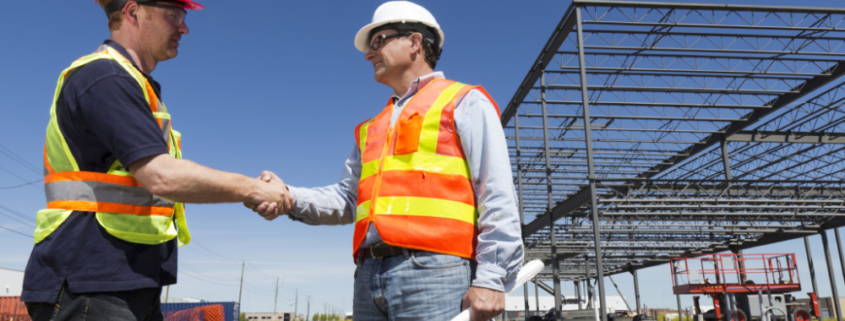How to Protect Your Construction Business from Risks Involving Subcontractors
A unique situation confronts general contractors and builders in terms of risk management. The law holds them liable to the owners for the actions and omissions on the part of their subcontractors. Therefore, it is vital for you to take the appropriate steps to protect yourself and your company as you work on job sites and engage subcontractors to perform work.
Sufficient Insurance Coverage
Before bringing a subcontractor on-board, it is essential to make sure that your subcontractor agreements have strong requirements for insurance coverage. You should then ensure that these contract provisions are enforced.
The provisions for insurance should include the need for subcontractors to maintain various kinds of insurance coverage (such as PL, worker’s comp, CGL, and automobile insurance) at minimum coverage levels.
In case a subcontractor signs a contract stating that they will get insurance, ask them to submit a Certificate of Insurance. If they are unable to provide this certificate, take them off the job. While this may require a few additional steps and more documentation, it is undoubtedly a worthwhile risk management initiative.
You should consult your insurance agent about more details on the types and amounts of insurance coverage necessary for your subcontractors.
Allocation of Risk
In your subcontractor agreements, there should be specific provisions to shift the risk and liability from you to the subcontractor undertaking the job in terms of that subcontractor’s work.
This aspect is more straightforward in commercial construction, where a majority of projects involve AIA or other subcontractor agreements specific to the project. But when it comes to residential construction, this is not always the case.
If you are involved in residential construction, it is best to have your lawyer prepare a master/standing subcontractor agreement detailing risk allocation and other general provisions. This agreement should be signed by every subcontractor you engage in working for you. A best practice in this area is to attach an addendum/contract document with the scope and price of work details.
Consult your attorney about what provisions are suitable for your master/standing contracts and for your project-specific agreements to make sure that the liability is equitably spread among parties, and is reasonable and fair, including but not restricted to, adequate indemnification provisions, insurance coverage provisions, equipment license provisions, flow down/conduit provisions, remedy provisions, and others.
Loss Prevention
Loss prevention can be summarized as various best practices concerning your relationship with your subcontractors. It can certainly be tempting to select the lowest cost subcontractor to work with you. But this can have adverse outcomes.
As a best practice, only engage reputable, well-operated, and well-qualified subcontractors. Instead of price, the primary consideration should be the quality of work. Besides, do not hesitate to end a subcontractor relationship, no matter how long or short, if the current employees and crew of the subcontractor are not working in an optimal and safe manner.
If the owner complains about an aspect of the subcontractor’s work during the project, it is vital to give notice to the subcontractor as soon as possible. In the course of following your loss prevention plan, you should make sure that the subcontractor understands and respects the significance of the process. Consult your lawyer about possible insurance claims.
Some possible options that your lawyer may recommend are:
- Inform the insurance company of the subcontractor of an owner complaint
- File a claim with the insurance company, if you are also insured under the plan
- Demand a tender of defense from the insurance company of the subcontractor on the basis of your additional insured status or contractual indemnification language
Safety of the Subcontractor
Lastly, a majority of general contractors are not aware that there are circumstances in which they may be held responsible for job site accidents and injuries sustained by a subcontractor’s employee(s). Under state law, general contractors are not liable for the safety of the subcontractor’s employees. But there are certain exceptions, such as:
Control Exception
Courts have determined in some cases that a general contractor is accountable for injuries that a subcontractor’s employee sustains when the general contractor has substantial control over the means and manner of work, i.e., sufficient control over daily work and the ways and techniques of the subcontractor.
Sufficient control in this regard does not include general oversight, inspection, and coordination of the subcontractor and their work.
Hazardous Conditions Known to the General Contractor
Sometimes a court has held a general contractor responsible for subcontractor injuries sustained due to hazardous conditions that were known to the general contractor but were not apparent to the subcontractor.
Other Exceptions
There are other exceptions under the law, such as where the contractor allows liability and where the construction work involves an unusual, unreasonable risk of injury.
Consult a Skilled Attorney for Subcontractor Agreements
The attorneys at the law offices of Evans Law have extensive experience handling cases related to real estate, construction, and land use. A skilled and knowledgeable lawyer at the practice can guide you on the correct measures to protect your business when working with subcontractors. Call today at (410) 626-6009 to schedule a consultation with a dedicated real estate attorney.





